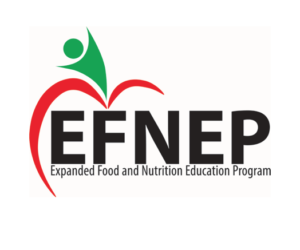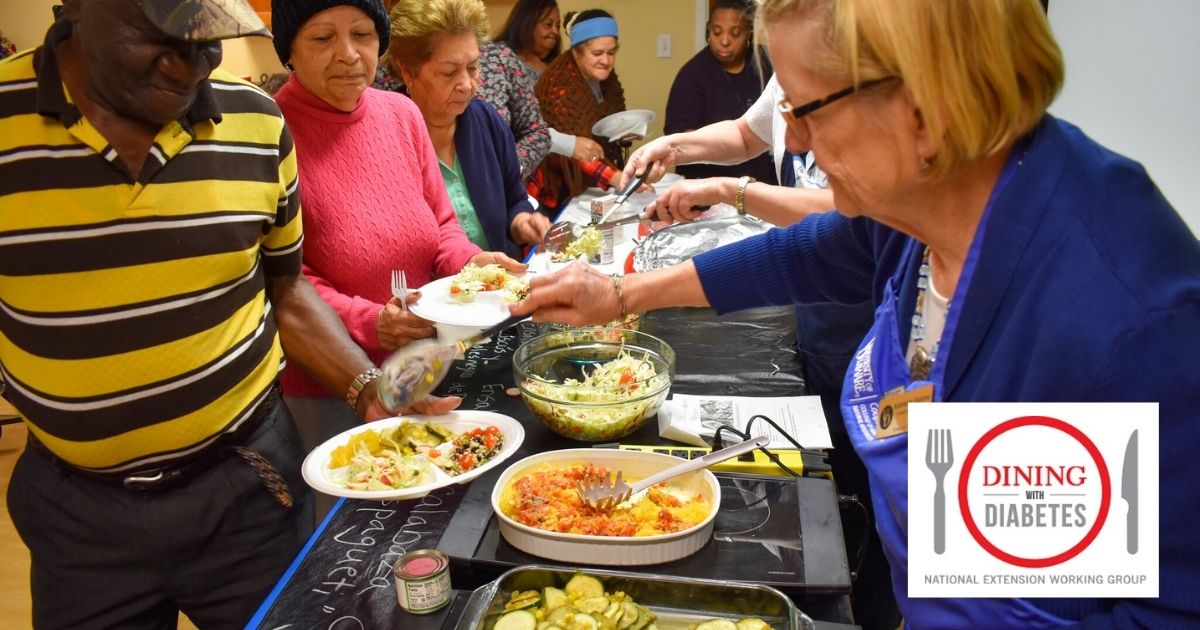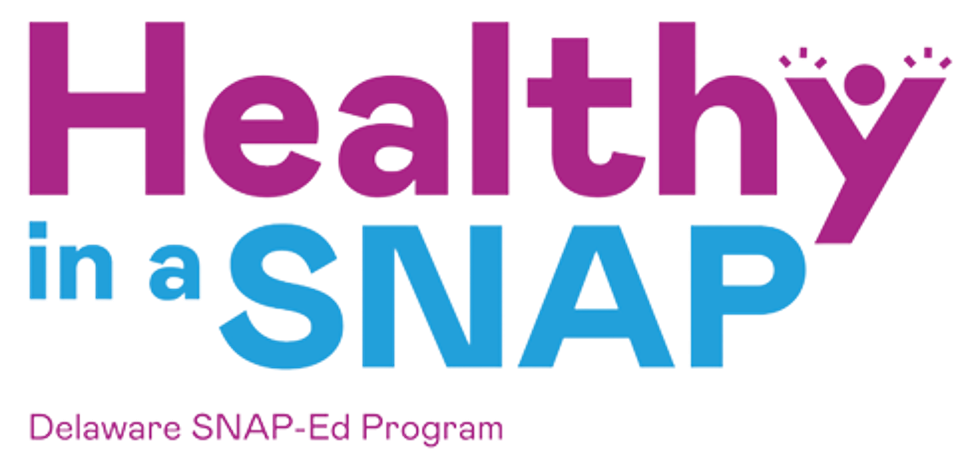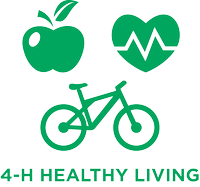
Nutrition

Nutrition
Nourishing our bodies is important for short and long-term health. Choosing healthy foods can sometimes be challenging. University of Delaware Cooperative Extension wants to help make this job a little easier. With programs that assist in managing diabetes, cooking for heart health, and understanding the basics of creating a nutritious plate, there’s a little something for everyone. Programs cover budgeting, food safety, and consuming foods that are good for our physical and mental well-being. Knowing how to create a well-balanced plate will help develop long-term healthy habits that will decrease the likelihood of disease, but most importantly provide an opportunity to try new foods, and experience old ones in new ways through the many recipes on this site.
In addition to teaching people the skills to make nutritious choices, Extension works with partners across the state to improve access to locally grown foods, healthier food options, and affordable options wherever possible. Working with farmers to bring foods to schools, small retail sites and community centers, and creating community garden spaces that provide healthy harvests are just some of the ways we are working to improve the food environment across the state.
Why is nutrition important?
Of the 10 leading sources of death in the U.S., five causes are linked to diet. Cooperative Extension programs are designed to help individuals to choose healthy food choices and to lead a physically active lifestyle.

What is EFNEP?
The Expanded Food and Nutrition Education Program (EFNEP) provides hands-on nutrition education through a series of lessons. Each group usually meets once a week for six to ten weeks. Best of all it is free to those who are eligible!
EFNEP participants learn about eating healthy and being active. Each session lasts 60 to 120 minutes depending on participants’ needs. Lessons are taught in groups.
Who can attend?
Anyone with limited resources and young children (0 to 18 years old) living at home is qualified. If you are eligible for SNAP (food stamps), WIC, Head Start or free and reduced cost school meals, you are automatically eligible for EFNEP.
You will learn about:
Healthy eating and cooking for less
Saving money at the grocery store
Keeping food safe
Being active
Preparing tasty foods
Planning meals
With EFNEP lessons, you will receive information on foods, recipes, and:
Calendar or cookbook
Grocery shopping list
Analysis of diet
Measuring cups and spoons
Food thermometer
Graduation certificate

EFNEP is a Federal Extension (community outreach) program funded by the U.S. Department of Agriculture National Institute of Food and Agriculture (USDA/NIFA), EFNEP uses education to support participants’ efforts toward self-sufficiency, nutritional health and well-being. EFNEP combines hands-on learning, applied science and program data to ensure program effectiveness, efficiency, and accountability.
Schedule an EFNEP class
The University of Delaware EFNEP curriculum includes Eating Smart & Moving More for Adults and Teen Cuisine for 6th-12th grades. During the summer, EFNEP educates youth using a different curriculum for ages 3rd-5th grades. Please complete the form below to schedule a class for your group!

WHAT IS DINING WITH DIABETES?
Following a careful meal plan is the first step in managing diabetes and keeping blood sugars in a therapeutic range. This is also the hardest step in diabetes management.
Dining with Diabetes helps by teaching persons with diabetes ways to reduce sugar, salt, and fat in foods, without giving up good taste!
About the Program
The program is designed for people with diabetes and their family members. The five-class series includes diabetes education, cooking demonstrations, and tasting of healthy foods. After each lesson, participants will take home recipes and knowledge about how to manage diabetes in their daily lives.
Class Demonstrations include...
- Class 1 - Mealtime for Individuals with Diabetes
- Class 2 - Desserts
- Class 3 - Main Dishes
- Class 4 - Side Dishes
- Class 5 - Seasonal Reunion
Who can participate?
People with diabetes and their family members, caregivers, and support persons can enroll in Dining with Diabetes.
Dining with Diabetes is designed to complement, not replace, diabetes management classes.
The cost of the 5 sessions is $50.00
To Enroll
–or–
request a printable brochure/registration form by calling 302-730-4000 or sending an email to khutton@udel.edu
The University of Delaware welcomes and encourages the participation of all individuals. If you should have special needs because of disability, please notify us when you register.
Who are the instructors?
Classes are taught by University of Delaware Cooperative Extension staff:

The Supplemental Nutrition Program (SNAP) is the largest program in the domestic hunger safety net. The primary purpose of SNAP is to prevent the debilitating effects of hunger by providing nutrition assistance to millions of eligible individuals and families. The Supplemental Nutrition Program – Education (SNAP-Ed) is a research-based federal nutrition education and obesity prevention program.
In Delaware, the University of Delaware is the lead organization for SNAP-Ed. Working with partners across the state, the goal is to provide individuals and families with access to opportunities for healthy foods, and education about healthy behaviors.
Individual or family
If you or a family member want to learn more about getting healthy in your community, check out the links and contact information below.
This information will be updated in the near future.
Community Partners
If you are interested in teaching your students, clients, congregation, or general community about healthy living, we have many options for you. The list below will give you an overview of the programs the University of Delaware and other community partners offer, who should attend, and who to contact if you would like more information.
Around the Table
A 6-week series-based education class focused on nourishing the minds and body.
Up for the Challenge
A 5-session class to be delivered in school to middle school students (grades 5 - 8). The focus is on developing healthy behaviors, specifically around healthy food choices and body image.
School and Community Gardens
The University of Delaware supports partners in all three counties who are interested in developing community gardens. To be added to the list of considerations for partners we work with, please contact Gina Crist (gcrist@udel.edu)
For more information on SNAP benefits and SNAP-Education, including other programs offered by our partners at the Food Bank of Delaware and Delaware State University, follow us on socials @healthyinasnapde
Or check us out here: www.healthyinasnapde.org

Our 4-H Youth Development program has additional resources, which can help educate youth on the importance of living a healthy lifestyle.
Related Fact Sheets
All Results
-
5 MISTAKES TO AVOID WHEN PREPARING YOUR HOLIDAY TURKEY
Most of us buy our turkey frozen. Because turkeys are frozen with the neck and giblets packaged inside the turkey, it is necessary to defrost it before cooking. Three safe ways are available to defrost the bird.
-
AVOIDING TOO MUCH FAT, SATURATED FAT, AND CHOLESTEROL
Choose a diet low in fat, saturated fat and cholesterol does not mean "never eat cheese" because it contains fat or "never eat egg yolks" because they contain cholesterol. The total amount of fat, saturated fat, and cholesterol in your diet is what matters.
-
COLD SUMMER SOUPS
Cold Roasted Tomato Soup- Serves: 8 Ingredients: 1 tablespoon extra-virgin olive oil, 3 pounds large ripe tomatoes, cut in half crosswise, remove stem area, 6 medium bell peppers, cut in half crosswise, ribs and seeds removed...
- 1
- 2
- 3
- 4
- 5
- 6
- 7
- >>
























